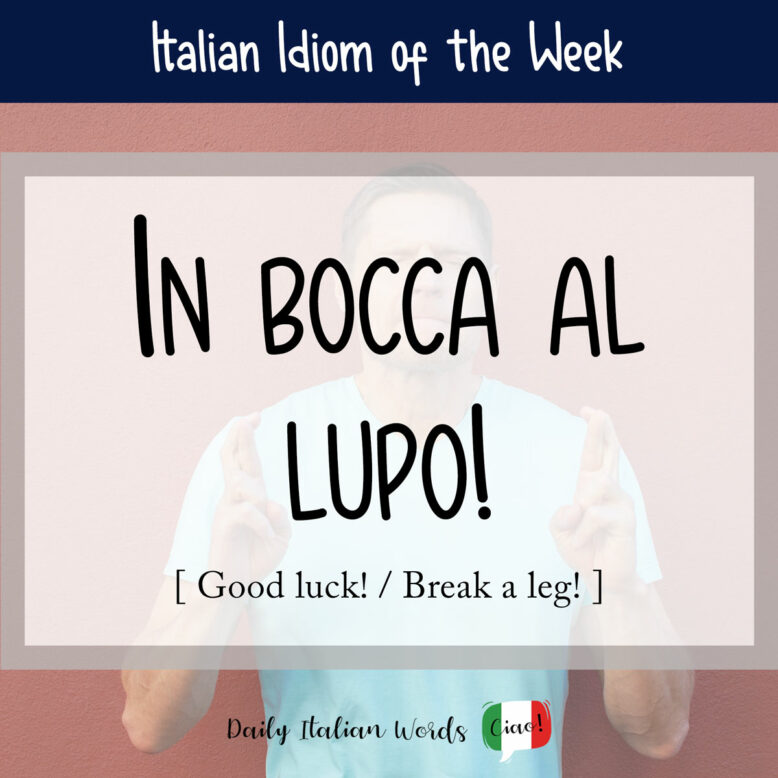In bocca al lupo, which literally translates to into the wolf’s mouth, is a very common greeting in Italian addressed to those in need of buona fortuna (good luck) such as, for example, someone about to embark on a risky endeavour or a student about to take an important exam.
In bocca al lupo!
Good luck!

Much like the English equivalent break a leg, the idiom reflects a superstition in which directly wishing a person good luck would actually be considered bad luck. For this reason, the habit of saying something negative emerged instead.

How to Respond to “In bocca al lupo” in Italian
What’s important to remember is that if someone wishes you in bocca al lupo, it is best to use the standard response crepi il lupo (lit: may the wolf die) or, more commonly, crepi (lit: may it die).
Is it possible to respond with grazie (thank you) instead? Yes, but be aware that doing so might reverse your good fortune! Normally, people will say crepi first followed by grazie.
In bocca al lupo per domani! – Crepi il lupo!
Good luck tomorrow! – Thanks!
Break a leg tomorrow! – Thanks!

Another possible response that has recently grown in popularity is Viva il lupo! (May the wolf live!) Many prefer this expression because of the increasing awareness surrounding animal rights and protection.
Did you know that?
The expression originates from the hunting world, where hunters wished in bocca al lupo to their comrades so that they would not end up being eaten by a wolf. It serves an apotropaic function, which means it was believed to have the power to avert evil influences or bad luck.
Another similar, albeit more vulgar expression is in culo alla balena, which translates as in the ass of the whale. According to albanesi.it, the phrase may come from the biblical tales of Jonah, who was swallowed by a big fish and vomited three days later after praying intensely.
Here as well there is a specific response, which is no less vulgar: Speriamo che non caghi! (Let’s hope it doesn’t poo!).

Heather Broster is a graduate with honours in linguistics from the University of Western Ontario. She is an aspiring polyglot, proficient in English and Italian, as well as Japanese, Welsh, and French to varying degrees of fluency. Originally from Toronto, Heather has resided in various countries, notably Italy for a period of six years. Her primary focus lies in the fields of language acquisition, education, and bilingual instruction.


